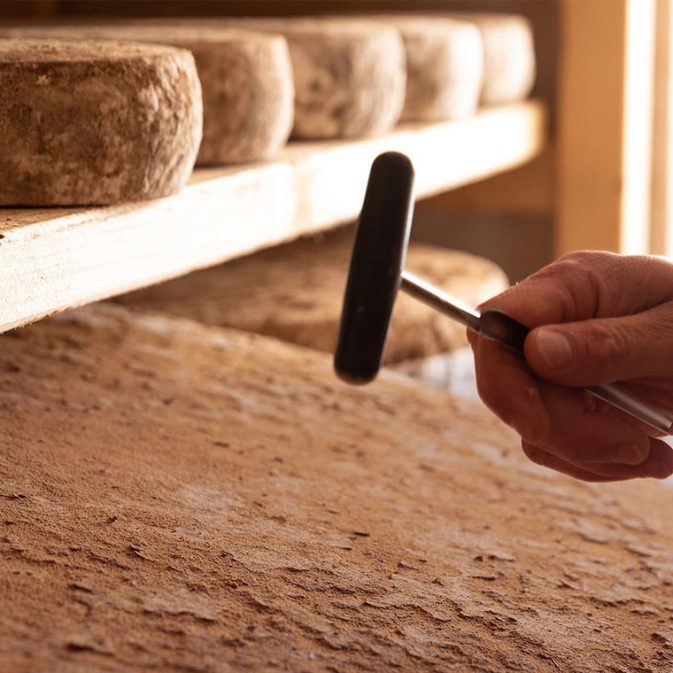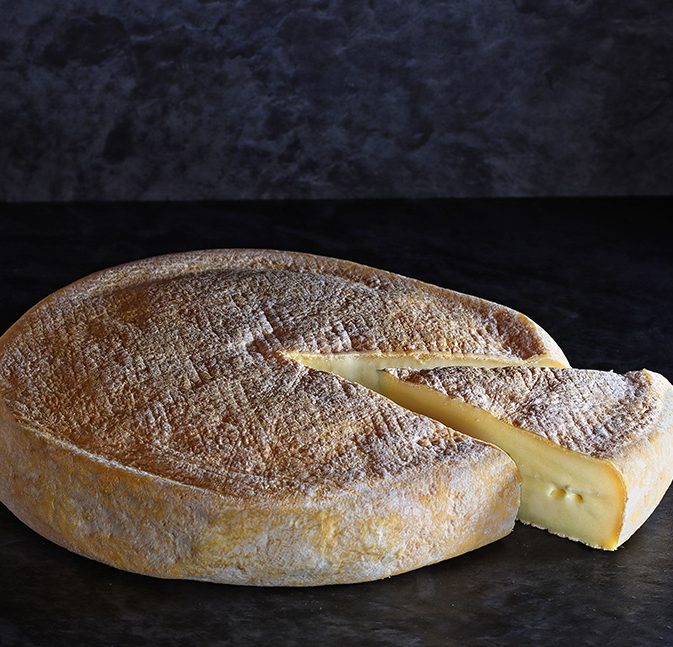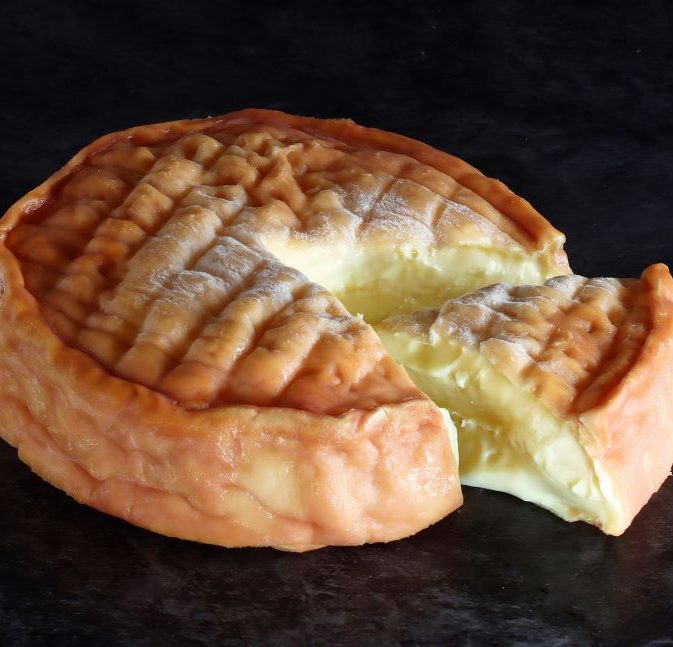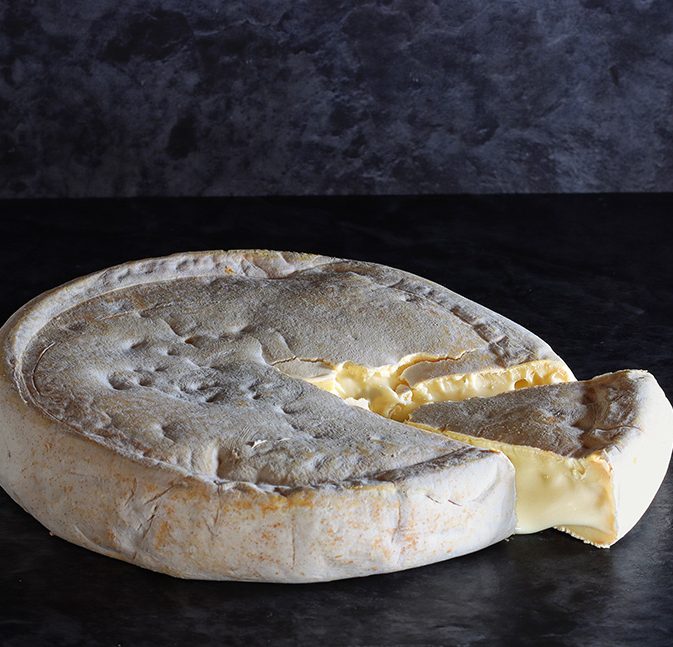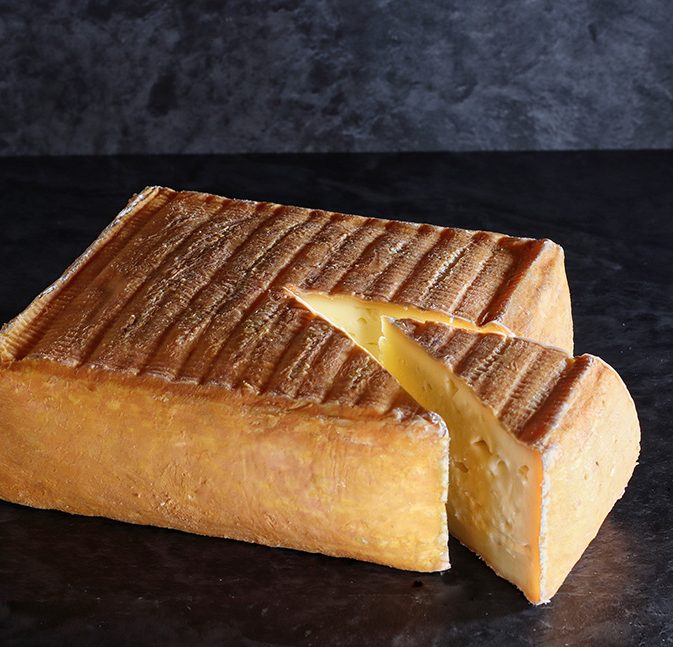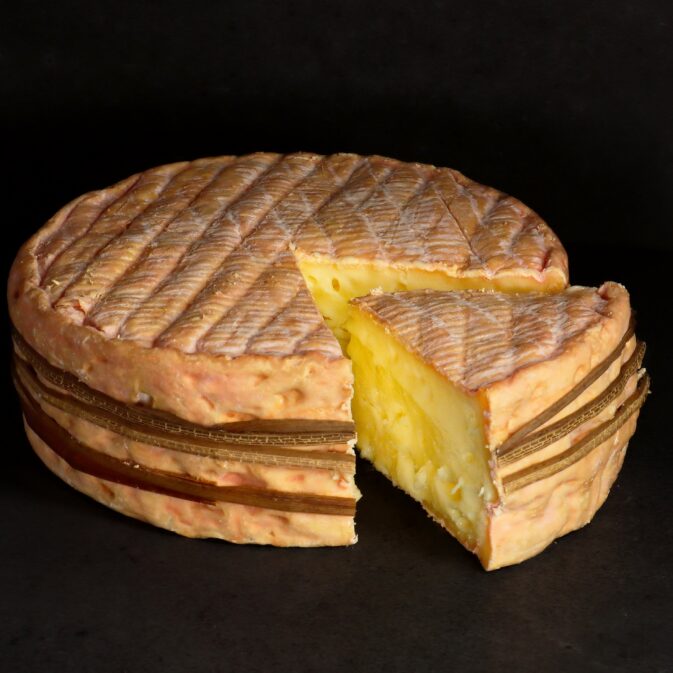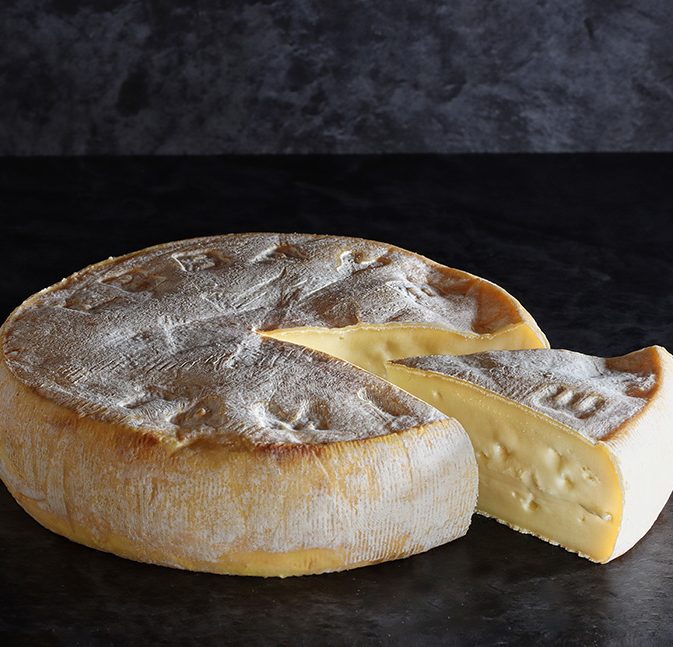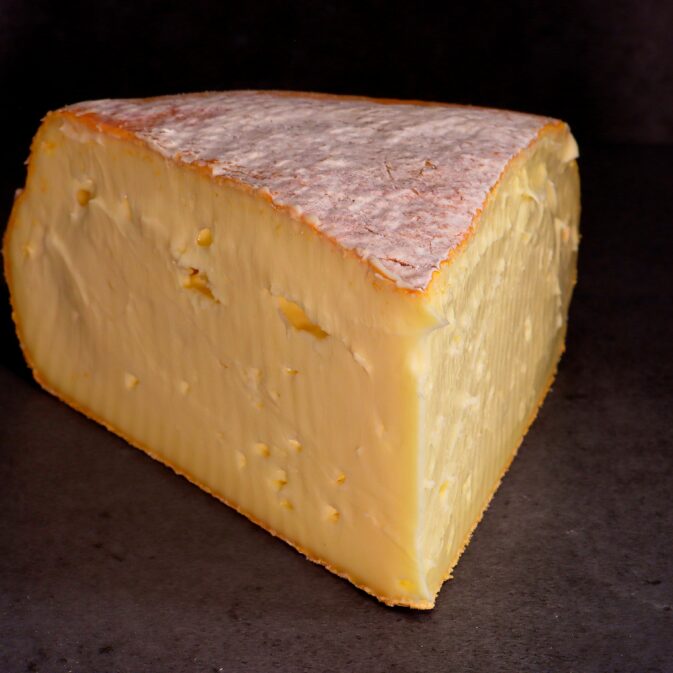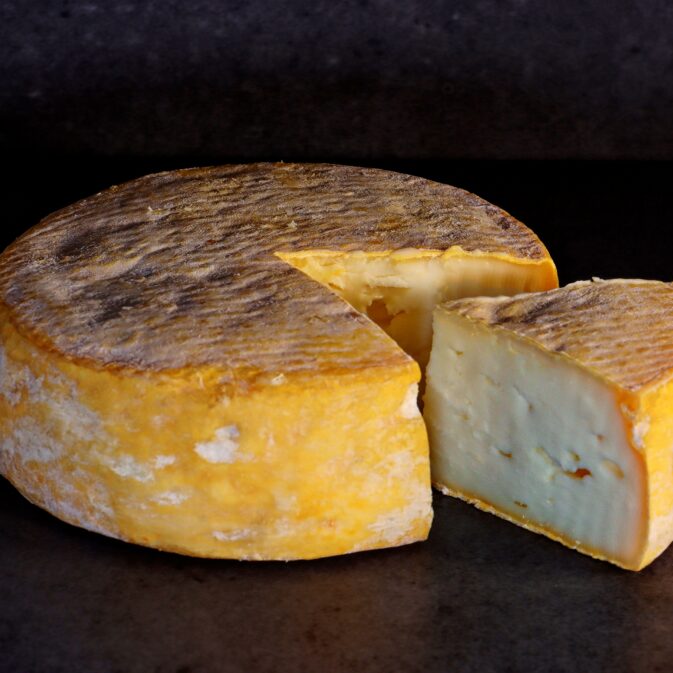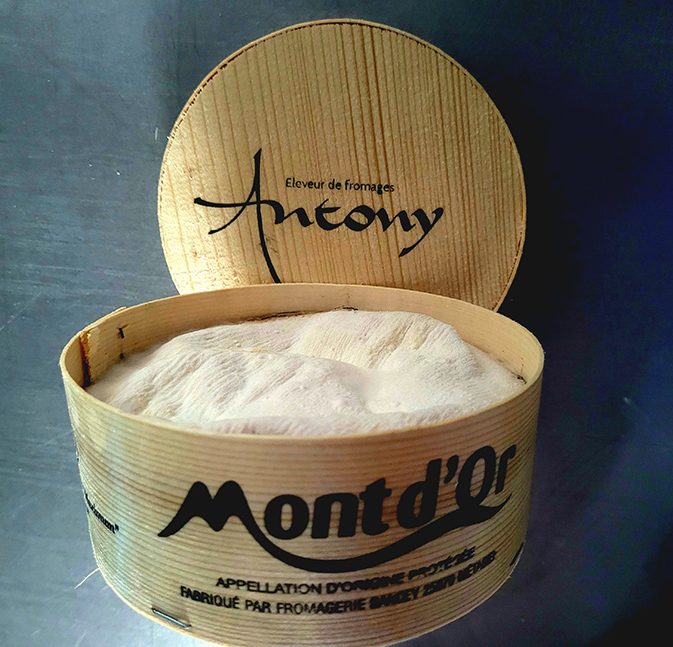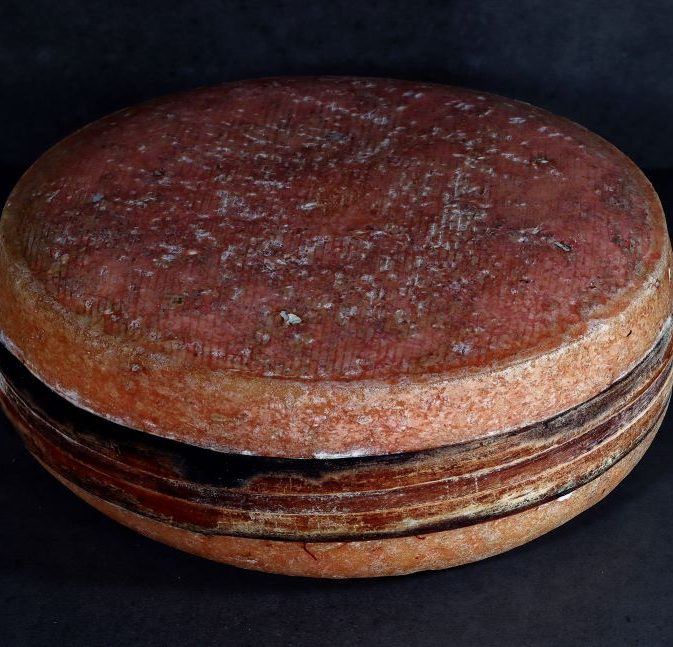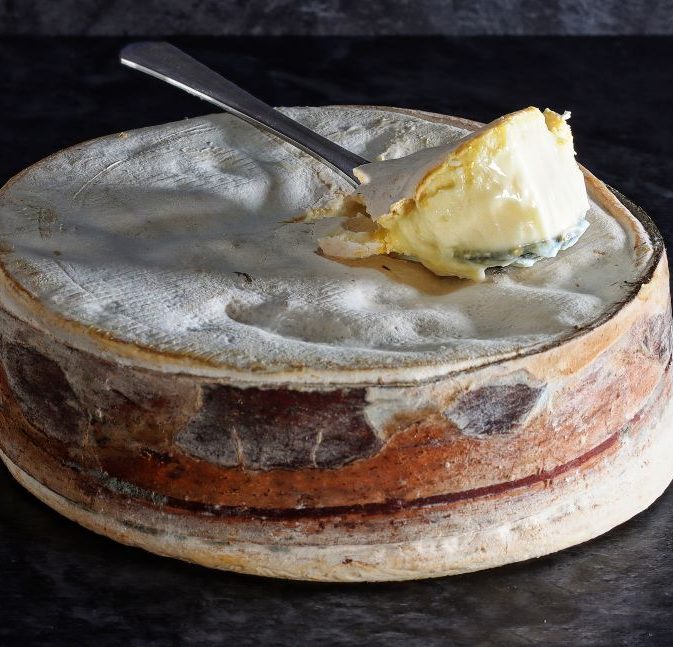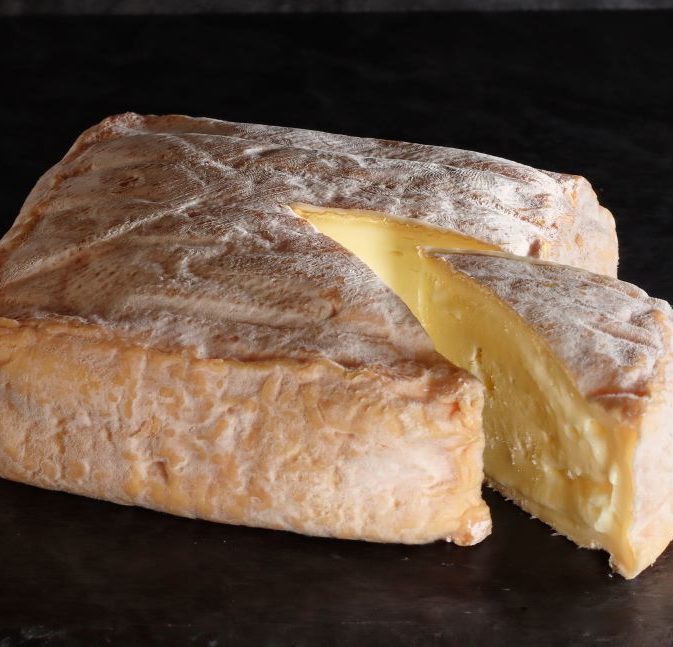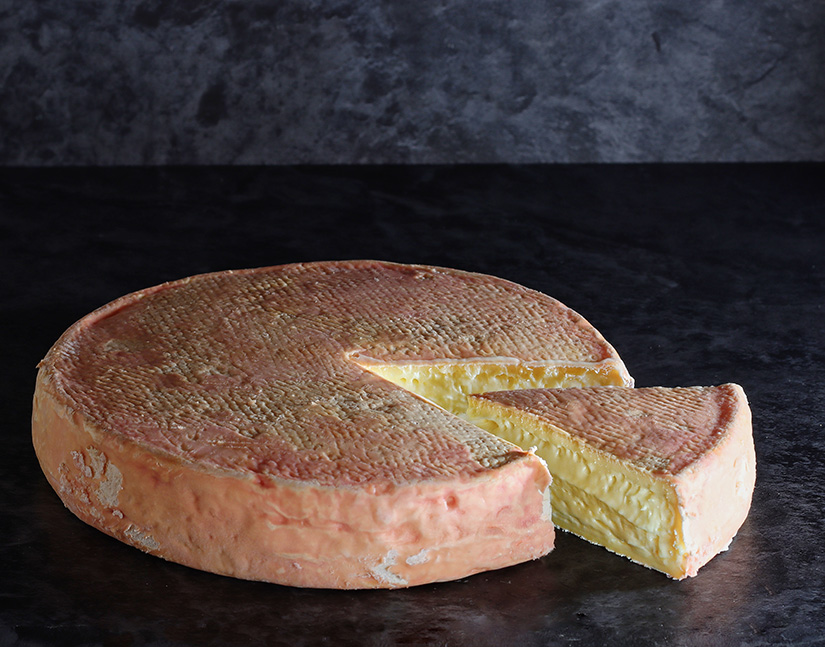
Munster Fermier
On the western slopes of the massif, the Petit-Jean family make their cheeses in Val d’Ajol.
Produced between Alsace and Lorraine, its name recalls its ancient monastic origins. Unfortunately, this cheese is not governed by a rigorous PDO, as it is far too permissive, covering under the same name industrial cheeses made from milk from silage-fed animals, as well as pure farmhouse and mountain products concerned with quality production.
We offer a farmhouse Munster produced on either side of the Vosges, like that of the Baumann family, who converted to biodynamic farming decades ago. Here, at an altitude of 1,000 meters, Vosges cows are perfectly adapted to the steep slopes and the climate. Their brick-colored cheese has a powerful yet pleasant nose, with aromas reminiscent of humus and undergrowth. The paste is quite yellow, slightly airy, with a frank but subtle taste, with a hint of bitterness. Their Munster cheese follows the seasons, with a wide range of flavors.
On the western slopes of the massif, the Petit-Jean family make their cheeses in Val d’Ajol. It produces a farmhouse Munster with an orange or even yellow rind, fatty and mottled, hiding a generous, creamy ivory paste. The nose is animal-like, but the palate is surprisingly soft, with a beautiful fatness dominating and accompanied by discreet liquorice notes over a fine length. Their Munster is often finer and less rustic.
The two farms take a different approach, each offering an artisanal product with its own character.

Categorie
Washed rind

Région
Grand Est

Lait
Cow

Terroir
Massif vosgien, village du Val d'Ajol

